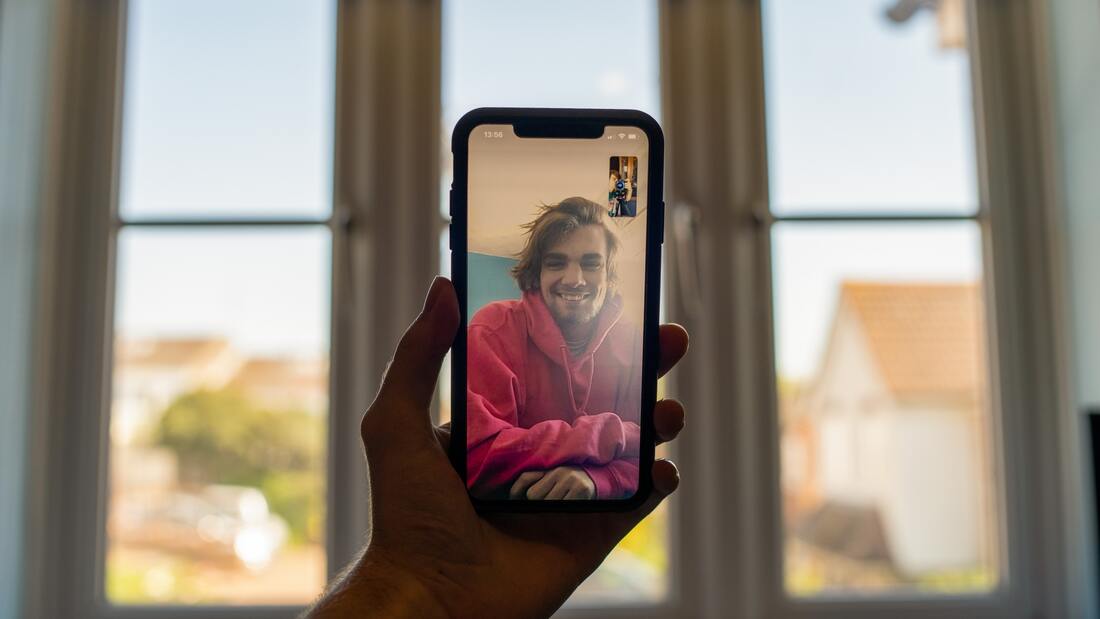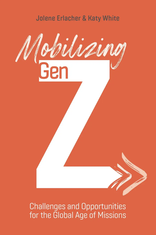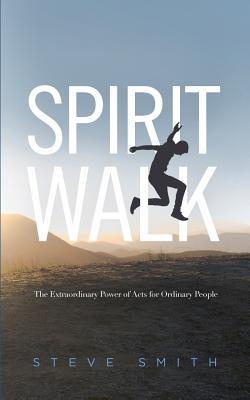|
Historians estimate that the population of Christians in the Roman empire was 7,500 in 100 A.D. From there, rapid growth ensued so that 150 years later the population of Christians surpassed 1 million and a hundred years beyond that, in 350 A.D. the population had exploded to 34 million so that over 50% of the population of the Roman Empire claimed Christ as Lord.1 How did such substantial and rapid growth occur in a context so opposed to the Christian message? Michael Green, in his book Evangelism in the Early Church says that “The very disciples themselves were, significantly, laymen, devoid of formal theological training. Christianity was from its inception a lay movement, and so it continued for a remarkably long time. This must often have been not formal preaching, but informal chattering to friends and chance acquaintances, in homes and wine shops, on walks, and around market stalls. They went everywhere gossiping the gospel; they did it naturally, enthusiastically, and with the conviction of those who are not paid to say that sort of thing.”2 We see the first example of this kind of lay-led expansion in Acts 8:4 where those fleeing the growing persecution in Jerusalem after Stephen’s death “were scattered everywhere, and in every place they went, they told people the Good News.” Through the work of these amateur missionaries, the church in Antioch is planted. Later in Acts we see a similar pattern. In Acts 19, Paul has come to Ephesus where, after once again being rejected in the local synagogue, he moves to the lecture hall of Tyrannus where he hosts daily discussions. Luke records that “This went on for two years, so that all the Jews and Greeks who lived in the province of Asia heard the word of the Lord (v. 10, emphasis added).” While Paul plays a crucial catalytic teaching and training role, the fact that Luke so confidently records that everyone in the province of Asia heard the word of the Lord points to what Green identifies as the “informal chattering to friends and chance acquaintances, in homes and wine shops, on walks, and around market stalls.” Regular Christians gossiped the gospel wherever they found themselves. Missiologist Doug Birdsall reminds us that, “The Great Commission is for every church in every culture in every generation. There are no exclusions. But . . . every church in every culture in every generation must determine the way in which they respond to this responsibility -- in a way that is appropriate to time and context.”3 Like the early church, in order for the great commission to be completed, the whole church - missionary and layman alike - must have vision to be involved in the work God is doing among the nations and have appropriate and accessible opportunities to do so. As a stay at home mom, Sarah is a great example of this kind of vision. Sarah is thirty eight, the mother and homeschool teacher of six rambunctious kids and busy with all that life has for her and her family. She and her husband live in a small town in Michigan about an hour and a half from Detroit. They have a good life. Sarah however has always had a heart for the nations and a desire to see Muslims have an opportunity to hear and respond to the gospel. She serves on her church’s missions committee and they support several missionaries serving inside the 10/40 window. Sarah however has had a deep longing to do more and so when she heard about Embassy, a program that helps Christians connect with Muslims online, she jumped at the opportunity to join.4 After an initial orientation and training, she quickly made her first friend, a young lady from Pakistan whom she met on a secular language exchange app. Fatima, her new friend, was looking for a native English speaker to practice English with but she was also looking for friendship. The two began messaging several times a week and talked via video chat every Tuesday morning at 8 am. Over the course of the next two years, Sarah became a sort of auntie to Fatima. Her attempts at spiritual conversations however were almost always met with cold rejection. That all changed in March of 2020. The pandemic was just beginning to shut down the world and Fatima began to descend into a spiral of despair and insomnia. On their regular Tuesday morning call as twenty one year old Fatima unloaded all her worries and fears, Sarah offered to pray. For the first time, Fatima said yes. There on the video call Sarah prayed for the despair to go away, for a good night sleep and she prayed in Jesus name. She said amen and looked back up at her screen to see Fatima with tears in her eyes. Fatima wondered at Sarah’s prayer, so personal and so unlike her Islamic prayers. She commented that Sarah prayed as if she knew God, as if she expected him to listen. Sarah of course did. The next day, Sarah received a text from Fatima. “I’m about to go to sleep. Can you pray for me again? Last night I had the best night sleep I’ve had in weeks.” God was on the move and the next week, Sarah and Fatima began to read the Gospel of Luke together. Fatima began to pray to Jesus herself and a few months later, Fatima prayed with Sarah to accept Jesus as her savior. For the past 200 years, the paradigm of western missions has been to send missionaries to the places where the gospel had not yet taken root. This was the appropriate response for that time and context. In this paradigm of missions, the missionaries went and the local church partnered with them through prayer and financial support. Missionaries did their work overseas among the nations who had yet to respond to the gospel and the local church did their work back home. There was little overlap and few opportunities for a local church in the West to do anything more than pray for and send money to the missionaries they supported. We praise the Lord today that we now live in the shadow of a tremendous legacy of those faithful missionaries who went and the churches that sent them. The testimony of the rapid expansion of the Christian church in the global south reminds us of their faithfulness. Today we in the West are learning to partner with these majority world churches to continue the ministry of the great commission. We are working to determine the new ways in which we can respond to the responsibility of the great commission, in ways that are appropriate to our time and our ever changing context. It need not be noted that globalization, which is responsible for the greatest movements of peoples around the world in history, and the rise of new technology have changed the great commission context in extraordinary ways. While we surely must continue to send missionaries - and to send more - we must also work to find creative ways to respond to the new opportunities brought about by globalization and to utilize ever expanding technological developments. Much has been written to raise awareness and equip the local church to respond to the increasing opportunities to minister to the nations through the growing diasporas in our local context. We have a unique opportunity to mobilize the lay members of our churches into the harvest among Muslims, Hindus, Buddhists and others from non-Christian backgrounds who are finding their way to the West as immigrants and refugees, university students and professionals. Diaspora ministry offers for the first time an exciting opportunity for the local church to join the missionary in the work of evangelizing the least reached of our world, an opportunity that was rare even fifty years ago for most members of a local church. This is the appropriate response to globalization and the migration trends of the nations. Globalization has been driven in many ways by the technological advances in communications and computing that have taken place in the last century. The Apostle Paul watched legions of soldiers traveling across the Roman empire on a newly built and innovative system of roads. These soldiers were on their way to subjugate nations and oppress people but as he watched those soldiers march past, Paul saw the potential for those very same roads to carry the gospel all across that same empire. The printing press, radio, television and movies were all at one time new innovations that Christians quickly began using for kingdom purposes. The Internet and smartphones are the same. Missionaries and their sending agencies have quickly begun to utilize social media and online marketing strategies to sow the gospel all across the world. These media to movement strategies place simple gospel ads on the smartphones of tens of thousands in unreached nations. Systems of response allow for instant interaction with followers of Christ who can answer questions and send gospel resources to seekers and when the time comes, to connect them with a local Christian. The ability to sow the gospel abundantly has never been more achievable. An analogy that has helped me understand the media to movement ministry strategy is the picture of a lighthouse. If we imagine the unreached people of the world as individuals sitting in row boats in great seas of their own people groups and geographical regions, with a social media outreach strategy we can shine a great light into that people group or region. Most will inevitably ignore the light. But for those who have been seeking the truth and asking questions about faith, they will see the light and begin to row toward it suspecting that the answers to their questions can be found there. This all happens of course in the privacy of their own online interactions. The story of Sarah above highlights another opportunity that has received much less attention. Most of the members of our local churches in the English speaking West do not have the technical or linguistic expertise to be a part of media to movements strategies. Like it has for Sarah however, technology has created openings for everyone in the local church who loves Jesus and has an Internet connection to travel into the digital neighborhoods where the least reached of the world are gathering and there, to build relationships, demonstrate the love of Jesus and share the good news of the Kingdom. These opportunities are simple and accessible. If we go back to our analogy, the lighthouse is a powerful tool to sow the gospel abundantly but the lighthouse requires a significant level of technological expertise. We absolutely need to raise up more with these skills and to do a better job of identifying those in our local churches who already have them and inviting them to partner with the cross cultural missionaries who are working to develop media to movement strategies. We need more lighthouses. But there is also Sarah. Sarah isn’t able to run a lighthouse. But what Sarah is able to do is to step into a small rowboat, row out into that great sea of unreached peoples and bump into a rowboat containing someone who speaks her language and who is looking for friendship. By mobilizing the lay members of our local churches into their own row boats and sending them out, more Muslims, Hindus, Buddhists and people from other religious backgrounds will for the first time be connected with a true follower of Jesus. They will for the first time be the recipients of specific prayers for them and their family. They will for the first time be able to read and interact with the living and active word of God. If those things can happen we have created a tremendous opportunity for the Holy Spirit to move. The goal of mobilizing the laity of the church into online outreach ministry is of course that more people in places where there is little or no gospel witness will hear the gospel. There are however other ways that God moves through these opportunities. As I’ve led Embassy, a ministry at Crescent Project that mobilizes people like Sarah into online outreach among Muslims over the past five years I’ve seen a number of exciting side benefits.5 Our volunteers tend to become champions for Muslim ministry in their local context. They talk with friends, small groups and Sunday school classes about what they are doing and others wonder if they too could be used by God to impact the life of a Muslim living in the Muslim majority world. Our volunteers also talk a lot about the ways they have grown in their own faith as they’ve stepped out to build relationships with Muslims who believe very differently from any of their friends. When our Muslim friend scoffs at the idea of a Triune God as utterly heretical, it forces us to dig into the word of God, to pray more and to seek wise counsel. Most would say that joining our ministry has caused them to mature in their faith. Another reality is that many of our volunteers tell of how their online outreach has acted as a sort of training for their hearts to be more bold in reaching out locally. We have also had several of our volunteers move on from online outreach to actually going as missionaries to the Muslim world. Some joined us to prepare for their upcoming move. Others began to sense a new call to missions after they began interacting with Muslims online. And finally, when the lay members of our churches begin reaching out online, it creates a greater connection to the missionaries their churches are sending. My family and I served in Central Asia for a number of years and our small rural church loved and supported us in amazing ways. But we never really sensed in our church a deep heart for the Muslim people we were living among. Imagine how that might have changed had there been five or ten members who were connecting with people from our same country, building relationships with them, praying for them and seeking opportunities to share the good news of Jesus with them. The nature of the relationship would have moved toward a fuller expression of partnership in the ministry as they asked the congregation to be praying for their Muslim friends and inevitably asked us for training. While the list of opportunities for this kind of online outreach is long and exciting, some might push back and say that it's dangerous to turn untrained people who don’t know the language or the culture loose into online relationships with people living in the 10/40 window. To this I’d first say that our ministry does give initial and ongoing training to our volunteers. It is not as in-depth as a missionary sending agency and few of them are learning the language; they are connecting with English language learners. Furthermore, this objection assumes a neutral reality but the digital world is far from neutral. I recently did a search on a common language exchange app that our volunteers use to make connections. I searched for Arabic speakers living in Algeria between the ages of eighteen and twenty two. I quickly found over 200 Algerians who had signed onto the site in just the last day looking for connections to a native English speaking friend. They will connect with someone. It may be a secular humanist or a radical atheist, a new age religionist or a jihadist but they will make connections online. Our hope is that more and more of them will connect with a follower of Jesus. Mobilizing the members of our local church is in no way going to replace the work of the professional missionary. Indeed, we need to send more missionaries. But these kinds of missional opportunities can be another spoke on the wheel of outreach among the unreached, ensuring that a few more will have an opportunity to hear and respond to the gospel. Jack is a great example of this kind of work. He is fifteen and loves video games. He also loves Jesus and as he was interacting on Discord, the instant messaging app favored by gamers, he began to realize that he was interacting with people from all over the world, many of them from the Muslim, Hindu and Buddhist worlds. He soon began to share about his faith and invite people into discovery Bible studies. Rita is seventy two, retired and joined our online ministry because she was convicted by the question, “Am I going to crochet my way to heaven?” She volunteered with us and on our orientation call, I was able to open up Facebook, search for “crochet Pakistan '' and we discovered four private groups of women who love to share their pictures of the handiwork they have created and to interact online. Rita asked to join one of the groups and was quickly welcomed by these Pakistani Muslim women, most of whom spoke some English. She was the first follower of Christ any of them had ever met. The opportunities for online outreach are nearly unlimited and they are available to the members of our local churches. Because of this, we in the mission community have a unique chance to invite our local churches into the harvest among the unreached in ways that have never before existed. In doing this, we can help ordinary followers of Christ find their way into the extraordinary work of God among the unreached. Endnotes 1. Stark, Rodney. The Rise of Christianity. HarperSanFrancisco; unknown edition, 1997. 1. Green, Michael. Evangelism in the Early Church. W.B. Eerdmans Pub., 2004. 3. Borthwick, Paul. Western Christians in Global Mission: What's the Role of the North American Church? IVP Books, 2012. 4. Embassy is a ministry of Crescent Project and mobilizes followers of Christ into the harvest among Muslims online. Learn more at: https://www.crescentproject.org/embassy 5. Crescent Project’s mission is to give every Muslim the opportunity to respond to the gospel and be connected with a follower of Christ. Embassy is just one of many of the ways they are working to complete this mission. Learn more at: https://www.crescentproject.org/ If you found this article helpful, please take a moment to share it with a few friends. Thanks so much!
0 Comments
Your comment will be posted after it is approved.
Leave a Reply. |
The E2E Community
Categories
All
Good Books
Archives
April 2024
|
Proudly powered by Weebly






